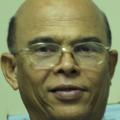Kerry noted the lack of media freedom, ongoing ethnic wars, communal violence in Arakan State, and land rights issues that continue to mar the transition period, and that have caused some in Washington to suggest Burma is backsliding on reforms.
During the meeting held at the Myanmar Peace Centre in Rangoon on 11 August (Monday) between the government's Union Peace-making Work Committee (UPWC) and some 150 representatives of 66 political parties, Aung Min said that there was an agreement to bring about political dialogue with ethnic armed groups within 90 days after signing a nationwide ceasefire.
According to Myanmar Today News (MTN), President Office Minister Aung Min further added that the political dialogue will start beginning next year. Since the upcoming election is on 2015, preemptive discussions are considered on the political framework for talks in parallel with efforts to bring about a national ceasefire.
President Thein Sein has pledged primarily to work in support of good governance, political settlement, poverty alleviation and establishing a lifelong peace setting. However, Burma's reform process as well as peacemaking seems stagnant as the government do not take into account citizens' suffering and despondency caused by the ongoing civil war under lawlessness.
(Article changed on August 14, 2014 at 02:46)
(Note: You can view every article as one long page if you sign up as an Advocate Member, or higher).





